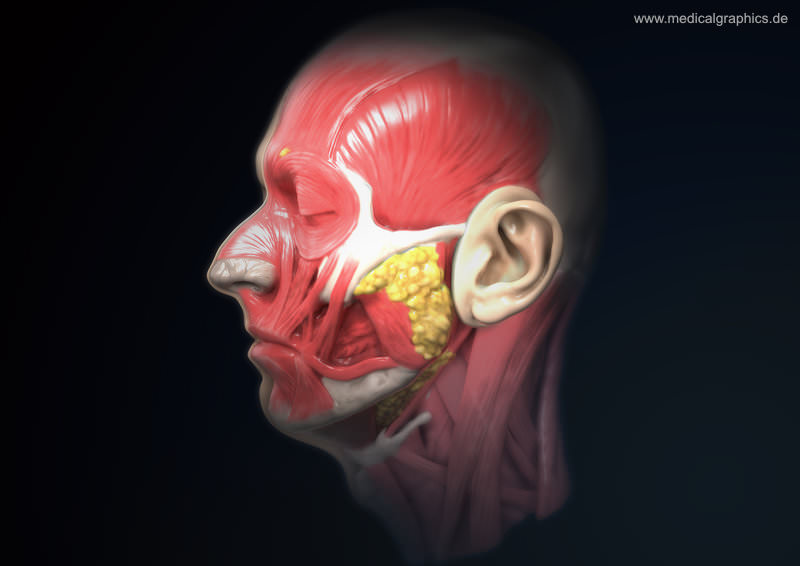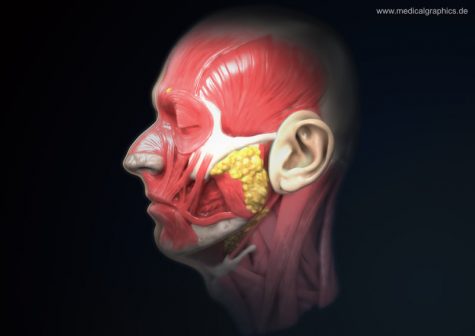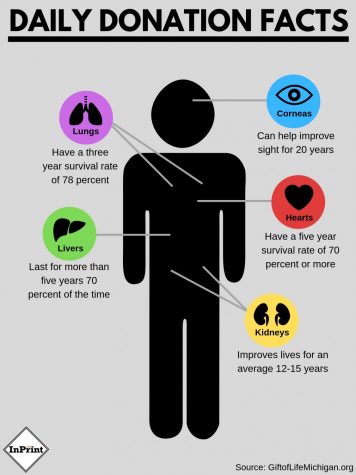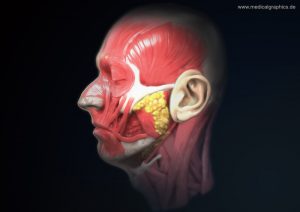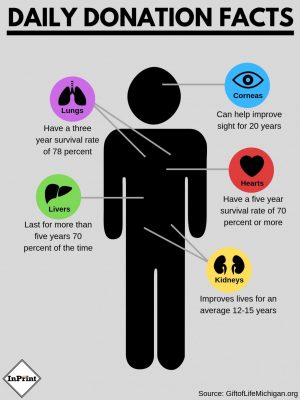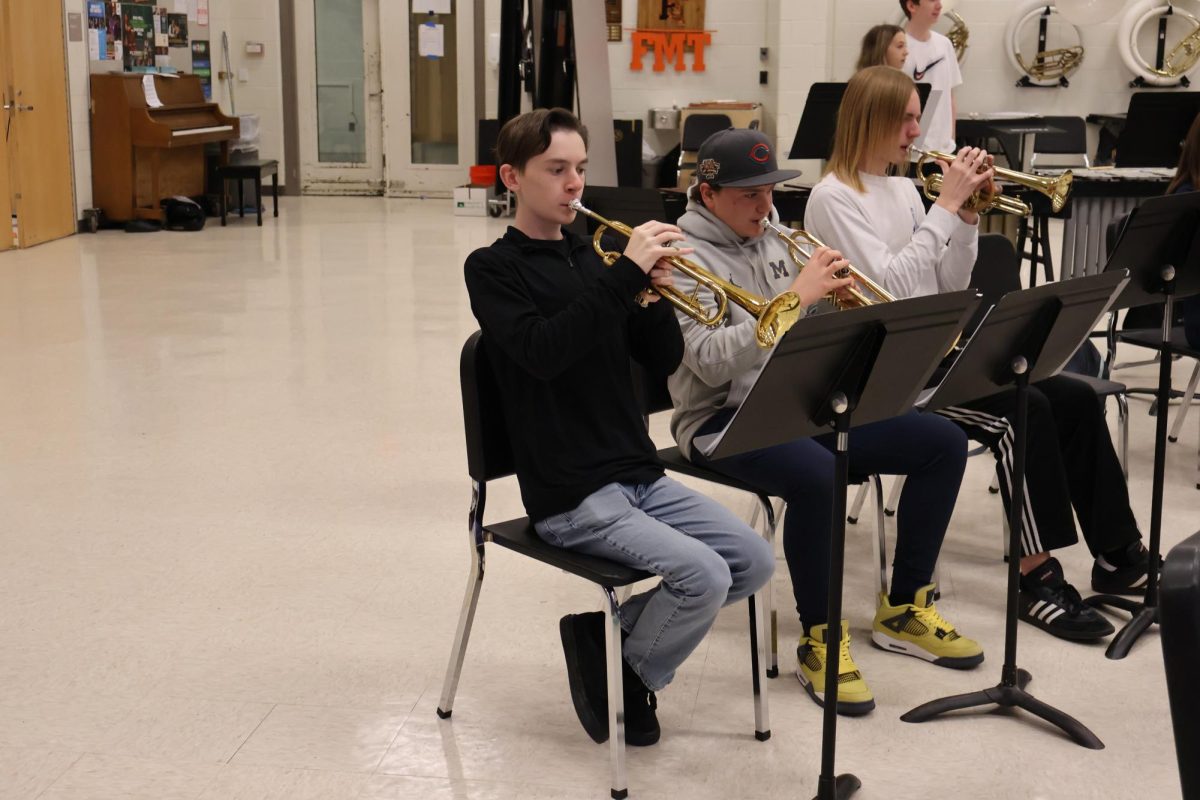Opinion: Organ donation is worth the risks
PHOTO www.medicalgraphics.de
Illustrations of the anatomy of the human head in profile in the style of a plastinate or an anatomical teaching model.
June 11, 2019
Every day in the US, 20 people die waiting for an organ on the transplant list. Add those numbers up, and it leads to approximately 7,300 preventable deaths per year in our country alone, according to the US Health Resources and Services Administration (HRSA). In addition, 95% of adults (18 and older) support organ donation, but only 58% are actually signed up as donors. That is almost a 40% difference that can easily be changed.
One person can save at least eight lives with their organs after brain death (meaning that their organs are still in working order). And why wouldn’t someone want to give their organs when they can no longer use them? According to HRSA, only three in every 1000 people die in a way that allows for organ donation. If there is a high chance that those three people aren’t even registered for organ donation, that’s at least 24 lives that can no longer be saved.
Many people who are against organ donation are this way because of religious reasons, especially Catholics, to their belief in the afterlife and maintaining a whole body. Of course, religious beliefs are not something to be ashamed or made light of, and should be respected by both medical professionals and all other third parties. However, the Vatican’s official position regarding organ donation is in favor of the process, and many Catholic organ donors argue this anti-donation sentiment with a Scripture verse from Genesis 3:19 recited by priests on Ash Wednesday: “Remember you are dust, and to dust you shall return.”
According to a study by certified Registered Nurses and Families also reject organ donation for several other reasons: the fear of being separated from any part of their family member, the need to “protect” them, and the fear of prolonging their pain by putting them through further surgical procedures. On the contrary, it is a scientific fact that brain death, or the permanent cessation of essential brain activity, is in effect the same as cardiac death, even if the patient may still be breathing through the help of medical technology. This means the patient is unaware of physical pain and is no longer present in their physical body.
Despite the inherent risks, organ donation is more beneficial for both parties involved. Every surgery has its risks, and organ donation is no exception, but the lives that can be saved are more important.

